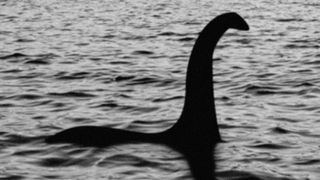The biggest hunt for the Loch Ness Monster in 50 years is about to begin
A visitor attraction in Scotland is enlisting the help of volunteers to search for Nessie, but it's unlikely to yield a monster discovery.

Hundreds of monster hunters will descend on Loch Ness this weekend for what organizers claim is the biggest Nessie search in more than 50 years — but don't expect a monster discovery.
The Loch Ness Centre, a visitor attraction in Scotland, announced earlier this month that it was "looking for budding monster hunters" to help search Loch Ness on Aug. 26 and Aug. 27 in what it's calling a "giant surface watch."
A spokesperson for the Loch Ness Centre told Live Science that more than 200 people have signed up to attend the search in person, while over a hundred more plan to take part virtually. The center promises this search will be "the biggest of its kind" since a group called the Loch Ness Investigation Bureau last studied the loch in 1972. However, scientific research suggests there's nothing monstrous lurking beneath the waves.
A scientific survey of Loch Ness DNA in 2019 found no traces of "monster DNA" to support the legend. The researchers did, however, find a lot of eel DNA and couldn't rule out a theory that overgrown eels are responsible for sightings. Loch Ness is also low in nutrients and unlikely to support a large unknown predator species like a massive ancient reptile, Live Science previously reported.
Related: No, the Loch Ness Monster was not a whale's penis
The Loch Ness Monster legend dates back many centuries, but this year marks the 90th anniversary of a famous Nessie sighting from 1933. Aldie MacKay, manager of the then Drumnadrochit Hotel — now the Loch Ness Centre site — helped ignite the modern Nessie craze after reporting seeing a "whale-like fish" or "water beast" in the loch.
Despite no hard evidence for the fabled monster's existence, Nessie became famous the world over, and the loch remains a popular tourist destination. This weekend, the Loch Ness Centre will host various activities as part of their search, including operating 90-minute-long "Premium Deepscan Cruises," where paying customers can join Nessie hunters using a hydrophone to "listen for noises in the depths of the loch," according to the announcement statement.
The visitor center claims it will also have surveying equipment not used on the loch before, including flying thermal drones equipped with infrared cameras to detect heat in the water. Meanwhile, surface watch volunteers will be asked to look out for "breaks in the water and any inexplicable movements," according to the statement. While in-person volunteering is now fully booked, people can still join the search from home by logging onto a live stream of the loch.
"The weekend gives an opportunity to search the waters in a way that has never been done before, and we can’t wait to see what we find," Paul Nixon, the Loch Ness Centre general manager, said in the statement.
Live Science newsletter
Stay up to date on the latest science news by signing up for our Essentials newsletter.

Patrick Pester is a freelance writer and previously a staff writer at Live Science. His background is in wildlife conservation and he has worked with endangered species around the world. Patrick holds a master's degree in international journalism from Cardiff University in the U.K.
Most Popular

By Conor Feehly

By Harry Baker